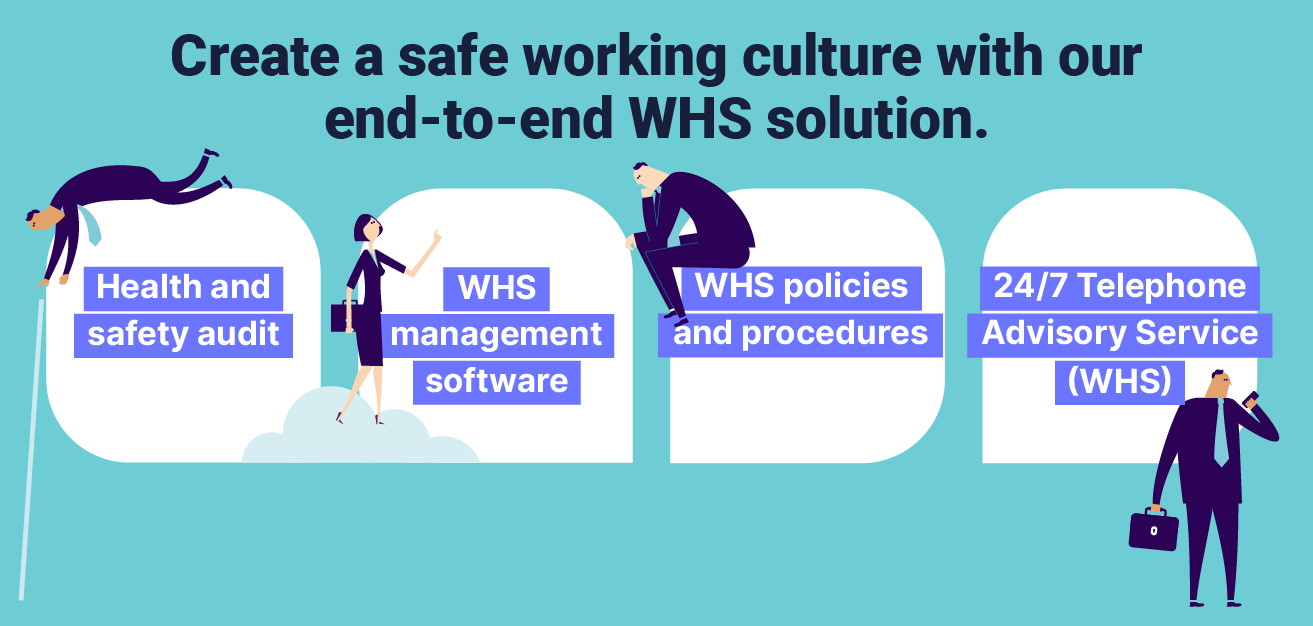By Cala Ahmed
Maintaining and promoting Workplace Health & Safety (WHS) in the workplace is key to the success of any business. Not only does prioritising WHS ensure your people go home safe and well at the end of the day, but also helps to foster a supportive working environment that places genuine importance on employee well-being.
While health and safety protocols can be conveyed through training materials to advocate for and closely monitor employee health and safety issues, another effective measure is designating a Health & Safety Representative (HSRs) within the workplace.
In this article, I explain what HSRs are, their responsibilities, and how their presence is beneficial to your business.
Who are HSRs and what do they do?
HSRs are elected by members of any business or organisation and specifically act as advocates for health and safety concerns on behalf of other employees within the organisation. It’s common to have one or two HSRs for each department within the business: this may be divided by team or function, or by the working environment of the various groups. Although each Australian State and Territory imposes varying legal obligations on these representatives, their general function to observe health and safety concerns in the organisation, monitor business safety compliance and flag any safety concerns remains consistent throughout all jurisdictions.
Key powers and functions of HSRs include:
- Representing employees of a workgroup in work health and safety matters;
- Investigating complaints from members of the workgroup;
- Monitoring compliance by the ‘person conducting the business or undertaking’ (PCBU)
- Inspecting workplaces where there has been an incident involving a serious risk to someone’s health or safety. HSRs must provide PCBUs with reasonable notice of such inspections;
- Inspecting the workplace without notice where there is a serious risk to a person’s health or safety due to immediate or imminent exposure to a hazard;
- Accompanying an inspector during an investigation of the workplace;
- Asking the regulator to initiate a workplace inspection and accompanying the inspector during the visit;
- Requesting the assistance of the regulator where a workplace health and safety issue has not been resolved preceding reasonable efforts; and
- Requesting that a health and safety committee be established.
What are your requirements as an employer?
Employers have a legal duty to consult with employees on workplace health and safety matters. By appointing an HSR, it’s ensured that risk management is informed by people who are directly involved with the work undertaken in their work environment. As an employer, you’re required to support HSRs in their role by:
- Providing access to any relevant approved training courses within three months of the HSR’s election;
- Consulting on work and health and safety matters with the designated HSRs;
- Providing resources, facilities, and assistance to enable HSRs to carry out their functions;
- Allowing HSRs to exercise their entitlements during their ordinary hours of work; and
- Keeping a current list of all HSRs and displaying a copy at the workplace.
Benefits to your business
Appointment and involvement of HSRs is an effective measure to improve the direct promotion of safety, but it can also help to benefit the overall safety culture within any organisation. Encouraging employees to incorporate safe practices and best utilise representatives by flagging health and safety concerns will boost employee ownership of workplace health and safety solutions and involve them in the assessment and resolution of hazards. Ultimately, HSRs can have a significant impact within a business setting by helping an organisation minimise accidents, injuries, and any foreseeable health and safety issues.
For comprehensive WHS guidance and tailored workplace health and safety support please contact the HR Assured team at our 24/7 Telephone Advisory Service.
Not an HR Assured client and have questions about this article? Contact the team at HR Assured for a confidential, no-obligation phone call.
Cala Ahmed is a Workplace Relations Advisor and assists a variety of clients via the Telephone Advisory Service. She is currently studying for a Bachelor of Business/ Law.





